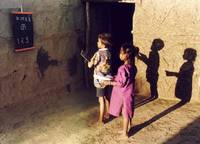Theme 14: Intersectoral approaches to mitigate the effects of COVID-19 on learning and well-being.
Thematic lead: Talia Esnard
Peer Reviewer: Dr Prabhakaran Kumar and Gloysis Mayers (Zayed University) (TBC)
Lead Organisation: The University of the West Indies (UWI) Trinidad and Tobago
Learning and Wellbeing within the education system
Interrogations around educational experiences; particularly learning and wellbeing, remain critical points of examination for building effective and effective educational systems.
Conceptualisations
The paper examines some of the structural and cultural challenges that affect learning and wellbeing of primary or lower level students within African countries. It is important at this point therefore to treat with how these will be conceptualised and operationalised within this meta-synthesis.
Theoretical Framework
As a theory, methodological framework and political tool, intersectionality allows for a nuanced assessment of how social issues (related to identity and lived experiences) connect to those of power, privilege and oppression within a given context (see Dill, McLaughlin, & Neaves, 2007; Jones & Abes, 2013). For Cho, Crenshaw & McCall (2013, p. 795), what makes an analysis intersectional..is its..intersectional way of thinking about the problem of sameness and difference and its relation to power”. When applied to analyses of educational institutions, intersectionality brings to the fore key questions around diversity, inclusion/exclusion, social axes of difference, educational (in)equalities and social justice. While most limited to developing countries, intersectionality has been used to examine the ways in which structures of difference (along the lines of race, class, gender, age, ethnicity, just to name a few) are used to marginalize and disadvantage persons within the education system, and, to make policy recommendations/strategic interventions that circumvent these. Given the practical implications of intersectional approaches for addressing inequalities and injustices within the education system, the following research questions emerge:
Objectives/Key Research Questions
- How to what extent do social axes of difference (e.g. race, gender, age, class, etc) affect learning and wellbeing within lower or primary school level education within African nations?
- How has the COVID-19 crisis challenged the goal of democratizing access and wellbeing for diverse populations within such contexts?
- How can intersectional analyses help mitigate the impact of COVID-19 on learning and wellbeing within such contexts?
*Picture courtesy of The Commonwealth Secretariat

